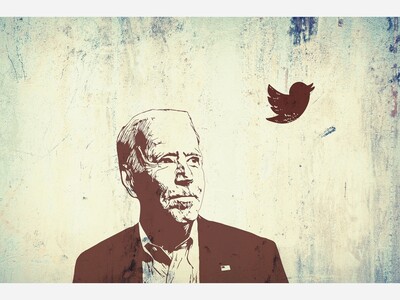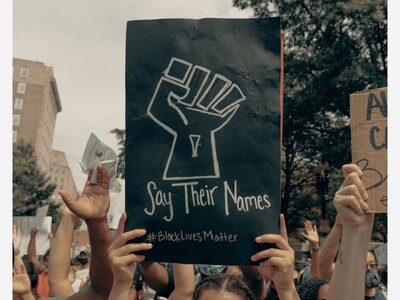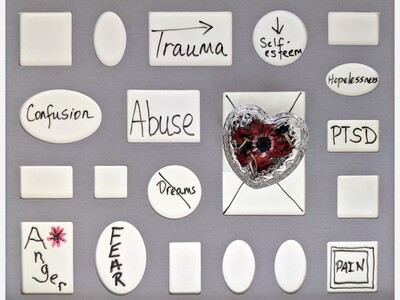Embracing Anxiety: Unraveling the Link to Childhood Repressed Memories and Understanding its Role in Escaping Reality
Anxiety, when viewed as a positive force connected to childhood repressed memories, can guide us towards self-discovery and healing, while also acknowledging its role as an escape mechanism that distracts us from confronting the realities of the present.
Exploring the Positive Aspects of Anxiety
Anxiety has long been regarded as a negative and burdensome aspect of our lives. It often triggers distress, restlessness, and unease, leaving us longing for relief. However, what if we were to challenge our perception of anxiety? What if we dared to view it as a messenger, guiding us towards unresolved issues from our past? At the same time, anxiety can also be seen as an escape mechanism, allowing us to avoid confronting certain aspects of reality. In this blog, we will explore how anxiety can be perceived as a positive force interwoven with repressed childhood memories while acknowledging its role in escaping reality.
Rethinking Anxiety: Harnessing the Power Within
Anxiety is often viewed as an unwanted intruder that disrupts our daily lives. However, when we shift our perspective, we can recognize anxiety as a signal from within, prompting us to pay attention to something important. Instead of suppressing or dismissing it, we can harness its power to gain valuable insights into ourselves and our past. By embracing anxiety, we can unlock hidden reservoirs of strength and resilience that lie within us.
Tracing the Roots: Childhood Repressed Memories
Childhood memories, especially those marked by trauma or intense emotions, have the potential to shape our adult lives. Repressed memories, which are memories unconsciously blocked due to their distressing nature, can exert a profound influence on our mental and emotional well-being. Anxiety often serves as a gateway to accessing these repressed memories, unveiling fragments of our past that hold the key to our present-day fears.
Unveiling the Connection: Anxiety as a Reflection of Repressed Memories
Anxiety acts as a messenger, alerting us to unresolved emotions and experiences buried deep within our subconscious. The triggers and patterns of stress we experience as adults can be linked to specific events or circumstances from our childhood. Exploring these connections requires patience, self-reflection, and professional support. Through therapy, mindfulness, and other therapeutic techniques, we can begin to uncover the hidden memories that fuel our anxiety.
The Avoidance Mechanism: Anxiety as a Distraction
While anxiety can be a powerful tool for introspection, it can also be an escape mechanism. Anxiety often diverts attention from the present moment, allowing us to avoid confronting uncomfortable truths or unresolved issues. It can keep us trapped in cycles of worry, preventing us from fully engaging with the reality of our circumstances.
Fear of the Unknown: Anxiety and Uncertainty
One of the driving forces behind anxiety is the fear of the unknown. It can be a coping mechanism that shields us from potential harm or failure by keeping us within our comfort zones and preventing us from taking risks or exploring new possibilities. In this context, anxiety serves as a means to maintain control over our lives, even if it means avoiding the reality we fear.
Healing and Growth: Embracing the Journey
Understanding the link between anxiety and childhood repressed memories is a vital step towards healing and personal growth. By embracing anxiety as a messenger, we can confront the past, integrate our experiences, and cultivate a stronger foundation for our future well-being. Simultaneously, by recognizing anxiety as an escape mechanism, we can challenge ourselves to engage with reality, embracing mindfulness and acceptance to break free from the cycle of anxiety-driven escapism.
The Role of Self-Care and Professional Support
Exploring childhood repressed memories and anxiety can be an intense and challenging journey. It is crucial to approach it with compassion and self-care. Engaging in practices such as journaling, meditation, exercise, and spending time in nature can provide support and facilitate the healing process.
Conclusion
Anxiety, when viewed through a different lens, can be perceived as a catalyst for personal growth and self-discovery. By understanding the intricate connection between anxiety and childhood repressed memories, we open ourselves up to a transformative journey of healing and self-awareness. Embracing anxiety allows us to confront the past, integrate our experiences, and cultivate a stronger foundation for our future well-being. Let us embark on this path with courage, empathy, and a willingness to explore the depths of our inner selves.













